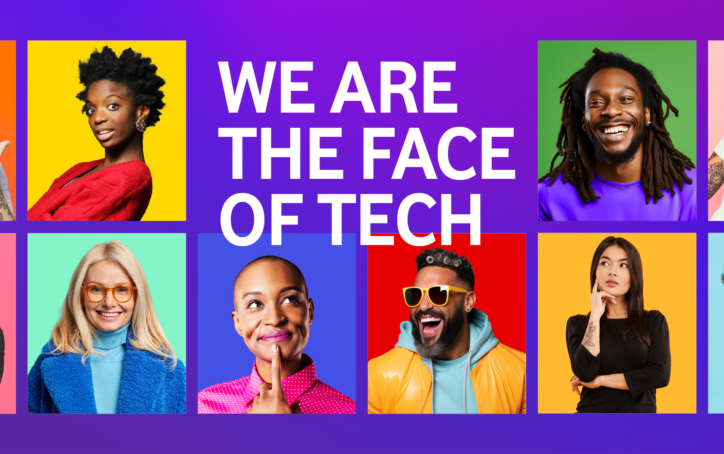
Vodafone and the University of Oxford tackle bias bots
Pictured (descending order): Professor Thomas Lukasiewicz; Doctoral Student Tatiana Botskina; Associate Professor Ani Calinescu; Dr Jindong Hou, Lead Research & Innovation Architect, Vodafone. Photo credit: Kiri Walden, Senior Communications Officer, Department of Computer Science, University of Oxford
Film makers have long embraced the concept of Artificial Intelligence (AI) robots mimicking human minds, and not always with a happy ending. Vodafone is working with the University of Oxford to avoid such an outcome. While the opportunities for innovation in AI are immense, the company is also guarding against any pitfalls that arise as the new technology matures.
Increasingly, Vodafone is turning to AI to offer customers more personalised products and services, extend network capacity where it is most needed, and to resolve customer enquiries more quickly.
But the unintended consequence of such personalisation and business decision making is the risk of algorithm bias. Data used to train an AI bot could contain human favouritism or intolerance – like a fondness for a certain handset brand – or data sets that are not representative of all Vodafone’s 350 million mobile, fixed broadband and TV customers.
A research collaboration framework has been initiated and established by Dr Jindong Hou at Vodafone and Professor Thomas Lukasiewicz, Dr Oliver Sampson, Associate Professor Ani Calinescu and Doctoral Student Tatiana Botskina at The Department of Computer Science, University of Oxford in the last three years. Thanks to this initiative, Vodafone is working with the University of Oxford to embed ethical AI throughout the customer journey, to ensure fair, transparent, explainable, and responsible AI.
The Age of Big Data
Dr Jindong Hou, Lead Research & Innovation Architect at Vodafone, explained: “In the age of big data, a company that harnesses the power of AI will have a competitive edge. However, as AI grows in usage and impact across geographies and industries, we have the responsibility to consider how it affects our customers, our employees, and wider society.”
The march of the AI bots shows no sign of abating. Most customer online interactions involve emerging technologies such as machine learning (ML), AI-driven chatbots and mobile messaging. My Vodafone App, which offers customers personalised services and rewards, is now available across 17 markets, and TOBi – Vodafone’s chatbot – is learning new tricks all the time such as proactively conducting network diagnostics to help provide a better mobile signal to customers.
These are examples of AI-driven benefits. Jindong stressed that Vodafone pays particular attention to ensuring its AI technologies are designed to respect the privacy and security of the end user’s data and their associated fundamental rights. “The customer data Vodafone uses is pseudonymised and permissioned,” he said.
Ethical AI by Design
Now, Vodafone wants to go a step further and embed ‘ethical AI by design’ at the start of every online customer journey, whether that’s ordering a new device, or querying a bill. The research collaboration project with the University of Oxford will help shape fair, transparent, explainable, and responsible AI.
“We are looking at the ability of deep learning models to understand hidden patterns and dependencies. These will allow us to better analyse and gain insights on complex business processes, such as customer journeys, to detect and remove human bias,” continued Jindong.
A proposal written by affiliates of the University of Oxford reinforces this view. It describes the benefits of combining attention-based machine learning models (which break down a complex task such as a customer searching for, and buying, a product) with causal inference (working out the cause of a decision from the data available). Getting to grips with this will help Vodafone further understand what frustrates customers and what delights them.
Attention-based language models help AI to focus on the most important parts of language, an image, or any other pattern that is being analysed. This helps to improve the output, which might be a translated sentence or a chatbot response. It has been used to great effect in healthcare, helping to predict the best treatment for a patient.
Free of Harmful Bias
Using a combination of attention-based machine learning models to find patterns, and then humans to help interpret or infer the causes of these patterns, Vodafone will be able to understand its customers better. The company can identify relations between different events within a customer journey and identify and control for any potential biases.
Jindong continued: “Many of the issues that arise in the context of AI and human rights are not novel, but are exacerbated by the scale, proliferation, and real-life impact that AI facilitates. Because of this, the potential of AI to both strengthen and diminish human rights is much greater than in previous waves of technological development.
“Wherever possible our AI-driven decisions are fair and free of any harmful bias and respectful of data privacy and security.”
Speed-up Boring Processes
Vodafone is also looking to use AI to make its employees lives easier by applying techniques to reduce mundane tasks that free up time to innovate and better serve customers. One such area that Jindong highlighted is Natural Language Processing (NLP) – a subset of AI in which machines make sense of human language.
“Let’s be honest, most of us find it tedious to write minutes either during or after meetings. Therefore, we developed an AI-based solution called Meeting Minutes Automation, which exactly targets this problem by fully automating the minute taking procedure.
“The bot is packed with useful things, including being able to convert speech to text, print only the words of certain speakers, detect action points and extract keywords. It is not only smart; it saves time, money and speeds-up boring processes.”
AI alone is not the answer to ensuring a smooth customer journey. Vodafone has invested heavily in replacing legacy systems, which don’t talk to each other, with those that take advantage of our scale to provide customers with a more consistent service across borders. For example, Vodafone is improving its network planning decision-making by using software that can process and analyse up to eight billion points of data every day from across its mobile network in 11 European countries.
In parallel, Jindong and the team are eliminating any accidental bias in Vodafone’s decision-making. They are working hard to ensure AI horrors played out on the silver screen are not replicated on the smartphone, PC, or small screen.



